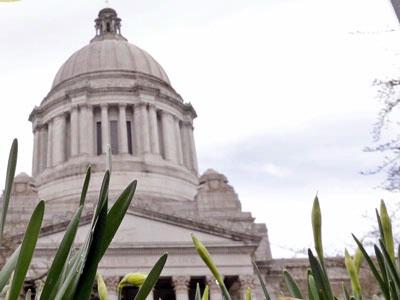
McCleary school funding lawsuit
Monday, July 14, 2014
 |
By Jason Mercier From the state's show cause brief: On the issue of whether to fine lawmakers, the state said: • 2010 – I-1098: Initiative Measure No. 1098 concerns establishing a state income tax and reducing other taxes. This measure would tax “adjusted gross income” above $200,000 (individuals) and $400,000 (joint-filers), reduce state property tax levies, reduce certain business and occupation taxes, and direct any increased revenues to education and health. Yes 36%; No 64% • 2010 – R-52: The legislature has passed Engrossed House Bill No. 2561, concerning authorizing and funding bonds for energy efficiency projects in schools. This bill would authorize bonds to finance construction and repair projects increasing energy efficiency in public schools and higher education buildings, and continue the sales tax on bottled water otherwise expiring in 2013. Yes 46%; No 54% • 2004 – I-884: Initiative Measure No. 884 concerns dedicating funds designated for educational purposes. This measure would create an education trust fund for smaller classes, extended learning programs, certain salary increases, preschool access, and expanded college enrollments and scholarships, funded by increasing retail sales tax by 1%. Yes 40%; No 60% • 1989 – I-102: Shall the State support of children and family services and K-12 education programs be increased by $360,000,000 in new taxes? Yes 34%; No 66% • 1982 – I-435: Shall corporate franchise taxes, measured by net income, replace sales taxes on food and state corporate business and occupation taxes? Yes 34%; No 66% • 1975 – I-314: Shall corporations pay a 12% excise tax measured by income so that special school levies may be reduced or eliminated? Yes 33%; No 67% • 1973 – HJR 37: Shall a graduated net income tax be authorized, excess levies for school operations be prohibited, and some excise taxes limited? Yes 23%; No 77% • 1972 – HJR 1: Shall the state constitution be amended to require periodic legislative review of all exemptions, deductions, exclusions from, or credits against any state or local taxes (except those concerning property held by religious organizations solely for religious or educational purposes) and to repeal automatically the statutory or constitutional provisions granting them unless such provisions are amended or reenacted by the legislature or (where necessary) reapproved by the people before March 1, 1977, and every tenth year thereafter? Yes 45%; No 55% The voters have been crystal clear concerning the policy of tax increases for education spending at the state level. A message their elected lawmakers may be sensitive to (as they should be). Next up for this potential constitutional train wreck is the plaintiff’s response to the state's brief on August 11. Then the state will get one more response on August 25th to be followed by a showdown at high noon (ok, 2 p.m.) on September 3 at the Supreme Court.
Circle your calendars for September 3. That is the date we'll start to get a feel for if the state is on a crash course for a full-fledged constitutional crisis or if the respective branches of government will respect the separations of power. The first attempt to back of the current dangerous path was filed last Friday when the state submitted its brief arguing against several proposals to hold the state in contempt concerning its response to the McCleary school funding lawsuit.
“To treat the Legislature's failure to achieve political agreement within a judicially specified timeframe as purposeful defiance of the Court's order would not give appropriate constitutional respect to the legislative process, to the Legislature's representative role, or to representative democracy under our constitution.
Put simply, it is one thing for a court to order the Legislature to comply with a constitutional mandate or limitation. It is quite another for the court to prescribe specific legislation. Doing so effectively imposes a judicial edict, rather than a democratic legislative decision arrived at by the representatives of the people of Washington. Moreover, directing specific legislation could upset the 'appropriate balance' between deference to the Legislature 'to determine the precise means for discharging its article IX, section 1 duty' and the Court's constitutional obligation.”
“Imposing a fine on the State if legislators do not vote in a particular way similarly coerces the vote of legislators, and it places the burden of the legislators' noncompliance with the Court's order on the wrong group of people. By subjecting the State to a hefty fine, the Court may be harming the very people it intends to benefit by diminishing the funds available to finance compliance with the Court's remedial order.
Moreover, if a sanction on the State is appropriately levied on the legislators who do not vote in a particular way, is it also appropriate to levy a sanction on the people when they act in their legislative capacity to repeal a measure the Legislature enacted that included school funding?”
Reviewing the history of tax measures at the ballot box I posed this very question a few weeks ago. Consider the following: